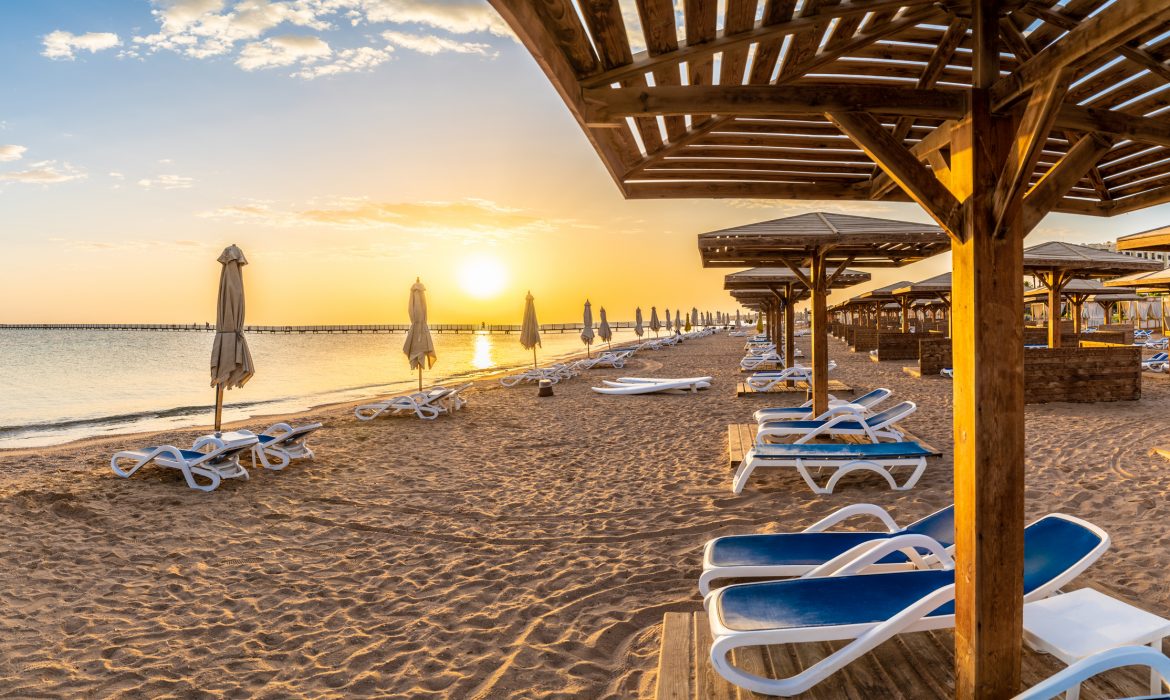Hotel occupancy rates in the key Egyptian Red Sea resorts of Hurghada and Sharm el-Sheikh are 30-40% and 20-25% respectively, two tourism industry officials told Reuters on Tuesday.
The coronavirus pandemic has been a major blow for Egypt’s tourism sector, a vital source of income which accounts for up to 15% of the country’s GDP.
After two months of closure due to the pandemic, Egypt allowed some hotels to re-open in May at a reduced capacity of 25%, before increasing it to 50%. The country reopened its airports to international commercial flights at the beginning of July.
“Hotel occupancy rates in Hurghada range between 30%-40% now, and it is the top tourist area in terms of occupancy in the Red Sea governorate,” said Kamel Abou Aly, chairman of the Red Sea Tourism Investment Association.
Egypt has 252 Red Sea resort hotels with 70,000 rooms.
Occupancy rates in Sharm el-Sheikh range between 20-25%, said Hisham el-Shaer, a board member of the Egyptian Hotel Association.
“The rate of improvement is increasing day by day with the desire of Egyptians to spend summer vacations in coastal areas,” he added.
Hotels have to meet strict health and safety protocols to get permission to return to business.
The tourism ministry said in a statement later on Tuesday that 100,000 foreign tourists have arrived in Hurghada and Sharm el-Sheikh since July. They were from Belarus, Ukraine, Switzerland, Hungary and Serbia.
The ministry did not mention the figure from the same period last year, and Reuters was not immediately able to contact it for comment.
The hit on tourism has been felt across Egyptian tourist resorts, including the upscale Red Sea resort of El Gouna.
“Of course the impact is great. We are getting much less demand; we have curtailed the capacity so that we are able to keep more social distancing in hotels,” Samih Sawiris, chairman of El Gouna developer Orascom Development Holding, told reporters last week.
“But the big problem is really the travel advisories of all the different countries, and the fact that they keep changing all the time.”






